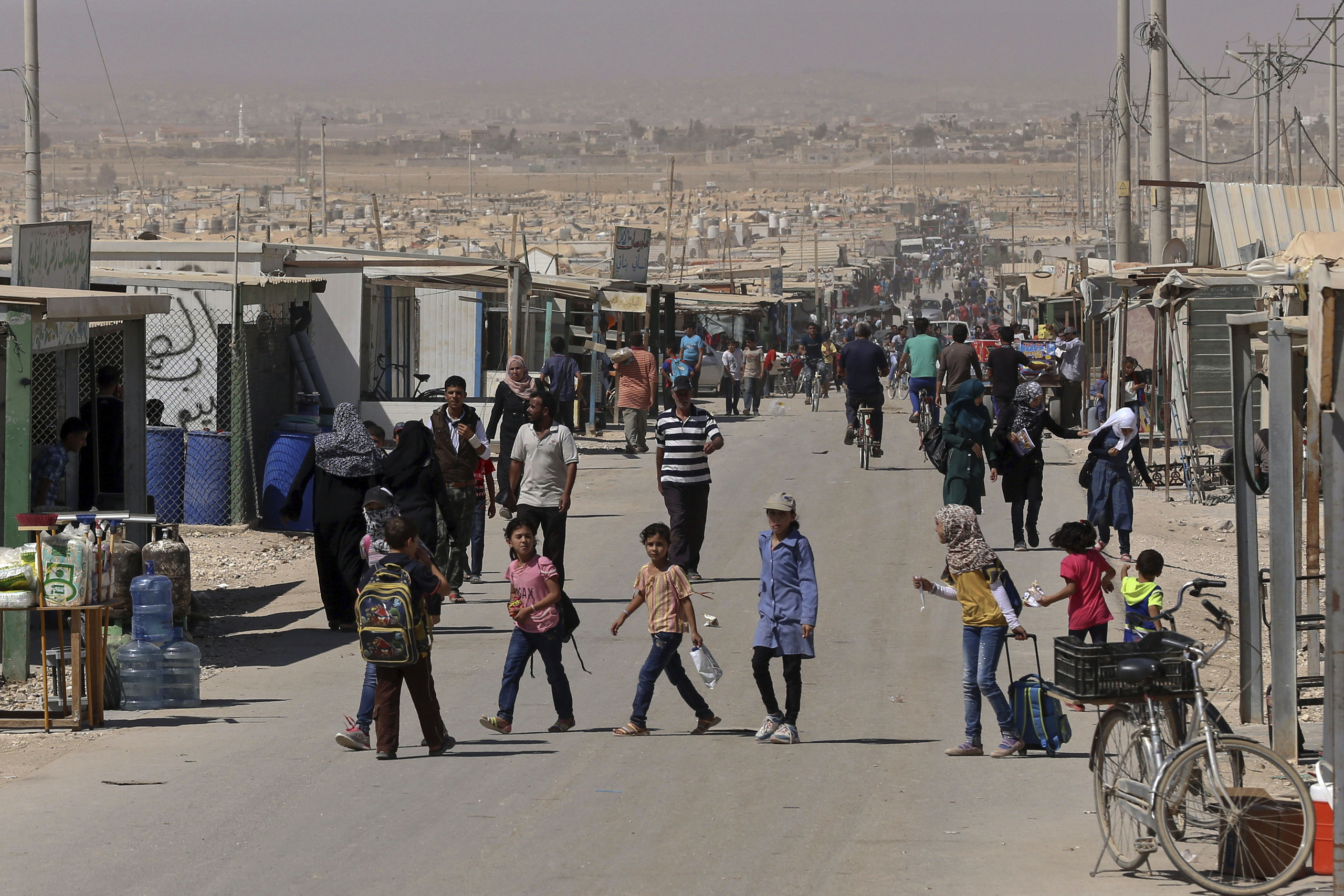Refugee livelihoods: Jordan

As the conflict in Syria enters its seventh year, refugees continue to live in precarious situations; savings have been depleted, social support networks have weakened and access to economic opportunities remains limited. Over 660,000 refugees from Syria are registered with UNHCR in Jordan, with 297,000 men and women of working age. The majority of male Syrian refugees in Jordan with employment work in agriculture as farm hands, work as mechanics or in construction. Female Syrian refugees have a preference for home based activities in food processing and catering1. Providing avenues to work and earn is vital to ensuring refugees have dignified and normal lives despite being in exile.
Syrians now form an important demographic in the labour market, compromising one fifth of the total non-Jordanian workforce. They have entrepreneurial spirit and valuable skills in specific occupations. They differ however from other migrant workers in several key aspects: they are in the country largely with their families and the majority of their resources are spent inside Jordan.
The Government of Jordan has taken an unprecedented step amongst refugee hosting countries by employing an ambitious approach to respond to the protracted refugee crisis. This journey had its beginnings in London in February 2016 during the “Supporting Syria and the Region” conference, where the Government of Jordan announced the Jordan Compact, a courageous shift in direction. With economic growth, trade and stability at its heart, the Compact called for investments in Jordan that would create jobs and economic opportunities, promote better trade conditions and support programmes that link humanitarian action to development, thus benefitting Jordanians and refugees alike. As noted in the Compact, “Cumulatively these measures could in the coming years provide about 200,000 job opportunities for Syrian refugees while they remain in the country, contributing to the Jordanian economy without competing with Jordanians for jobs.” Following the conference, the Government undertook the necessary administrative changes to allow Syrian refugees to have work permits: the Ministry of Labour (MoL) began issuing one year renewable work permits in certain occupations open to non-Jordanians, while many administrative requirements were eased.
Employment projects and research began in early 2016 as the livelihoods sector developed, and more agencies and NGOs started to make plans and think strategically on how to support the Compact. UNHCR tested the work permit system with a pilot project in the garment sector in collaboration with Better Work Jordan/International Labour Organisation (ILO). Key lessons were learnt on the importance of gender, cultural attitudes towards the sector, childcare and need for transportation to reach the workplace. UNHCR, together with other partners, continues to encourage women’s participation in the labour market, while also promoting access to economic opportunities in areas refugee women have better skills and greater interest in.
Since the issuance of work permits began, a number of additional steps have contributed to more Syrian refugees working formally. Agricultural cooperatives are allowed to facilitate access to work permits in the sector, work permits for Syrians remain free of charge, and a dedicated unit within the MoL ensures procedures are followed and continuously improved. A recent decision of the MoL has also opened the way for refugees in camps to work formally in cities across Jordan; in Zaatari and Azraq camps, refugees with a valid work permit can leave the camp for up to one month and access available jobs throughout the country. This increased mobility is very important to camp refugees and will also help in meeting work permits benchmarks.
In June 2017, further instructions from the MoL adjusted the type of skilled occupations open to foreigners in manufacturing, while “freelance” work permits in construction were facilitated by the ILO through the General Federation of Jordanian Trade Unions, supporting job mobility. By the end of July 2017, the MoL had cumulatively issued and renewed 60,000 work permits. Some 28,117 refugees currently hold a valid work permit.
Source: reliefweb international